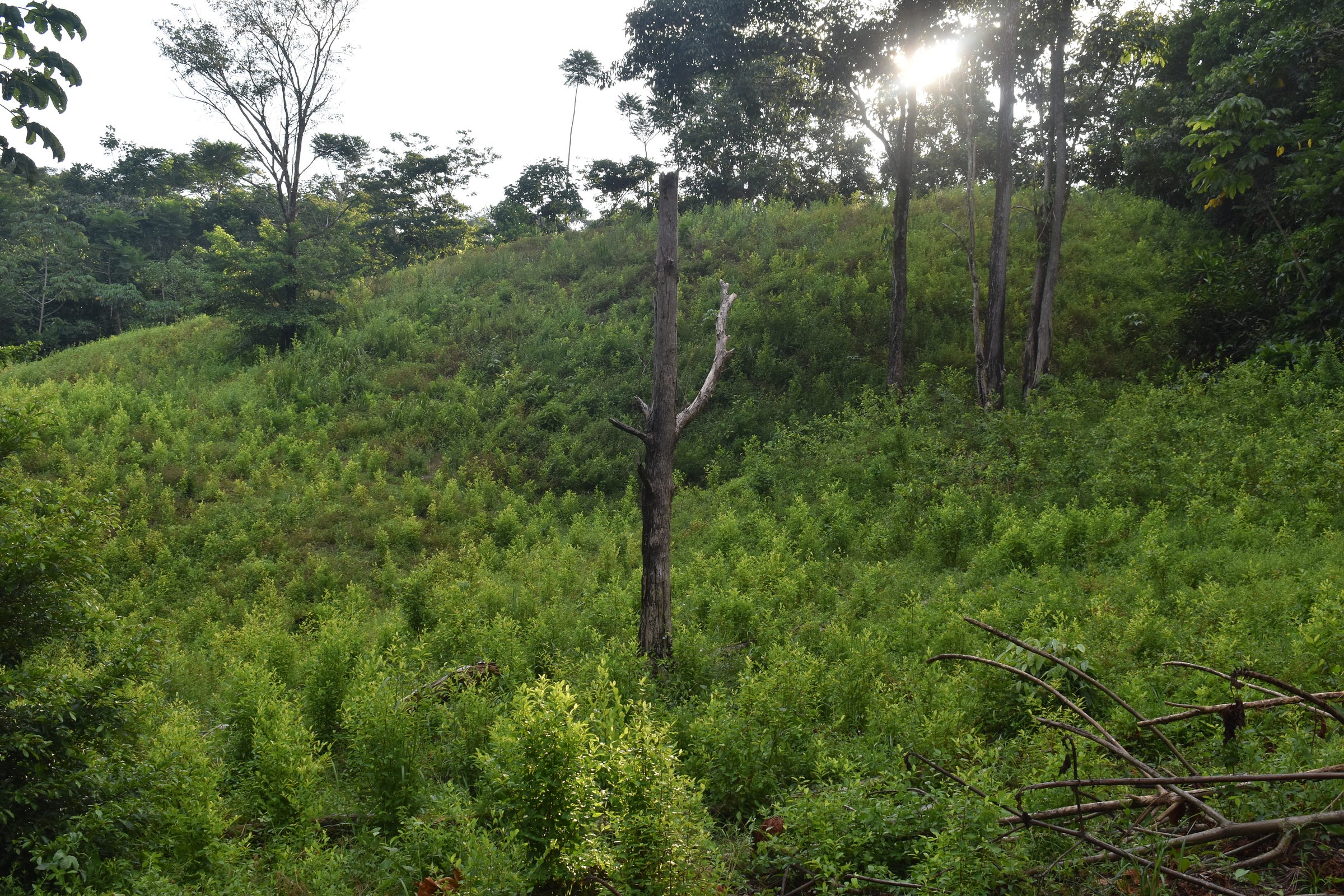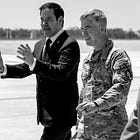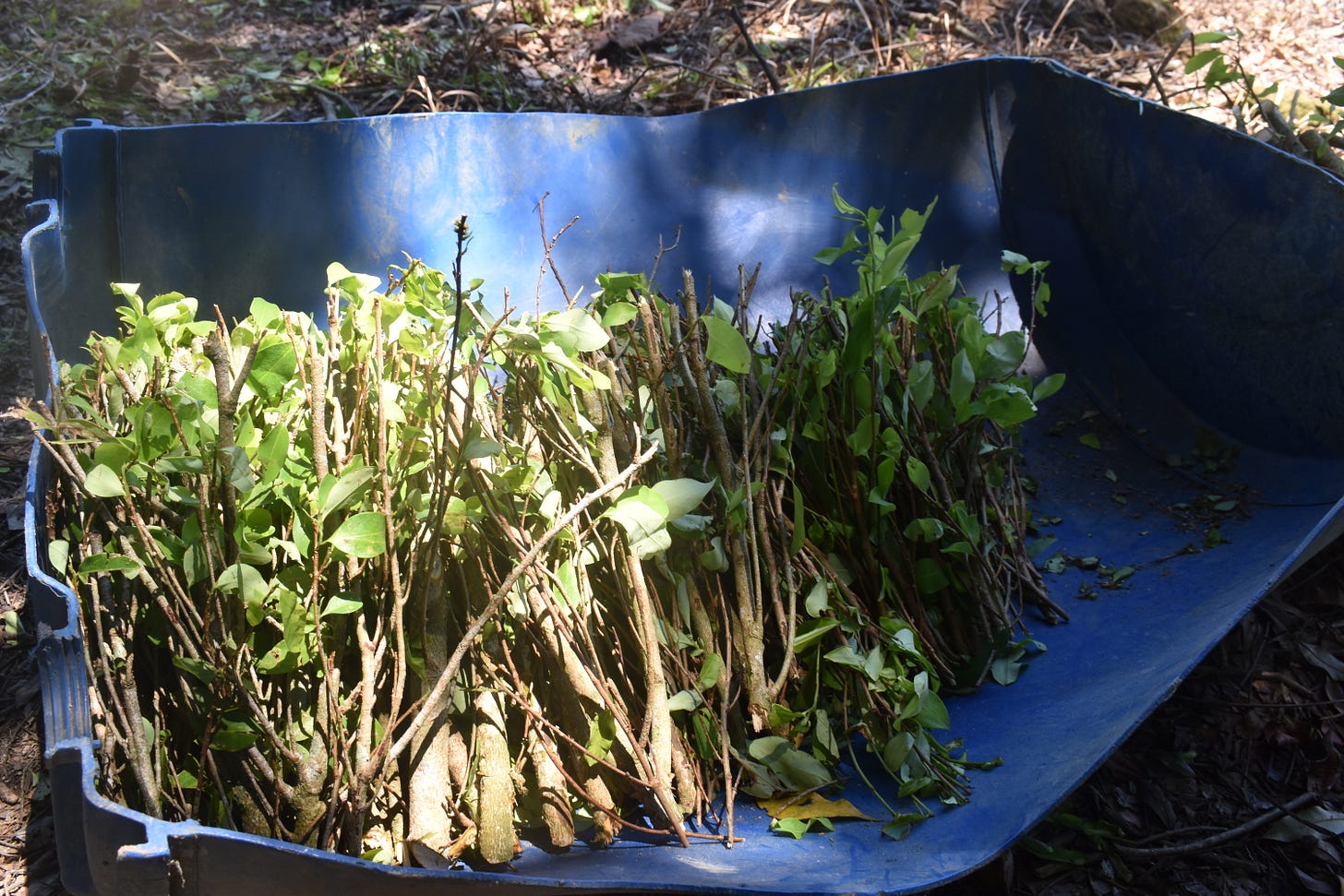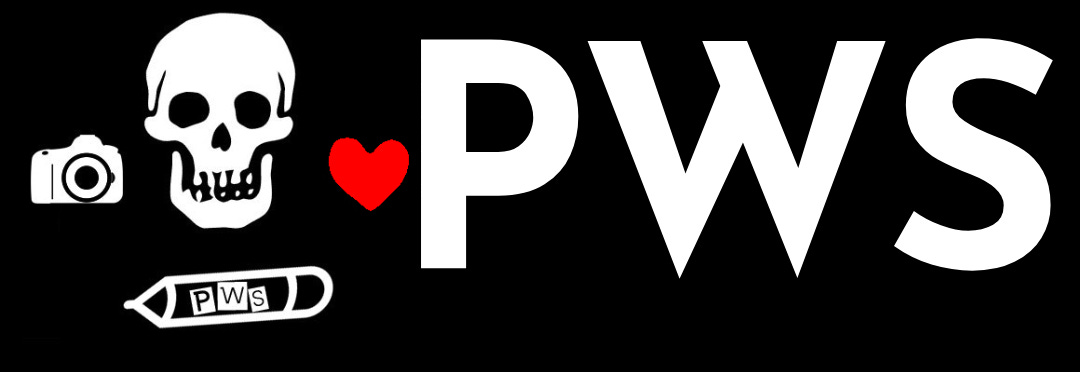Trump decertifies Colombia in the 'War on Drugs', Petro announces retaliatory actions
Petro's supporters say US is interfering in elections next year. The declaration does not include sanctions.
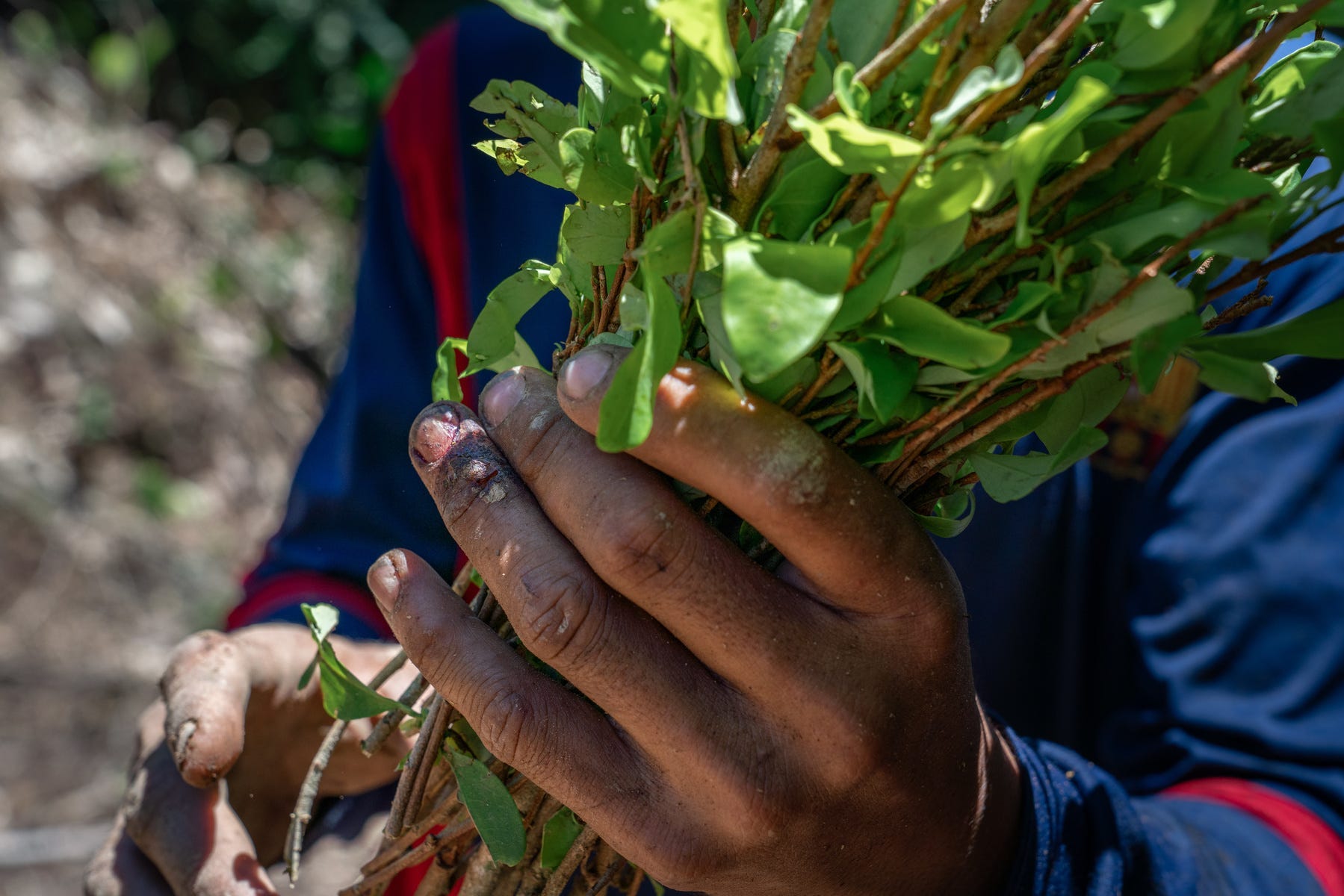
The United States has decertified Colombia as a reliable partner in the War on Drugs for the first time in almost 30 years — though with a waiver that suspends sanctions or cancels funding for bilateral anti-drug operations between the two countries.
Though for the moment largely symbolic, many experts within Colombia say the designation could affect the country negatively in indirect ways, such as attracting foreign investment.
It is also a sharp diplomatic rebuke to one of the US’s longest-standing allies in the region. The decision was announced by leftist President Gustavo Petro during a televised cabinet meeting, and confirmed shortly afterwards by the US State Department and the US embassy in Bogotá.
“Under Petro’s misguided leadership, coca cultivation & cocaine production in Colombia has (sic) increased to historic levels,” the US State Department wrote in a message posted to social media. “The U.S. is grateful to Colombian law enforcement and security forces who confront the narco-terrorists and we commend their courage, skills & sacrifices.”
A press release shortly afterwards specifically designated Afghanistan, Bolivia, Burma, Colombia, and Venezuela as countries that “demonstrably failed to comply with their international drug control obligations” over the past twelve months.
Decertification usually comes with a 50% reduction in foreign aid, as well as US opposition to global investment tools, like loans from the International Monetary Fund (IMF) and the World Bank.
Petro reacted strongly to the US designation, blaming the US for decades of failed policies as part of the ‘War on Drugs’, and criticizing the US for high rates of consumption that drive demand in global markets.
“More than a million Latin Americans have lost their lives in this war,” he said, referring to Nixon’s declaration of the War on Drugs in 1971. “We are the ones paying the price for their addiction…Colombians are the ones suffering so that they can smash cocaine in their noses.”
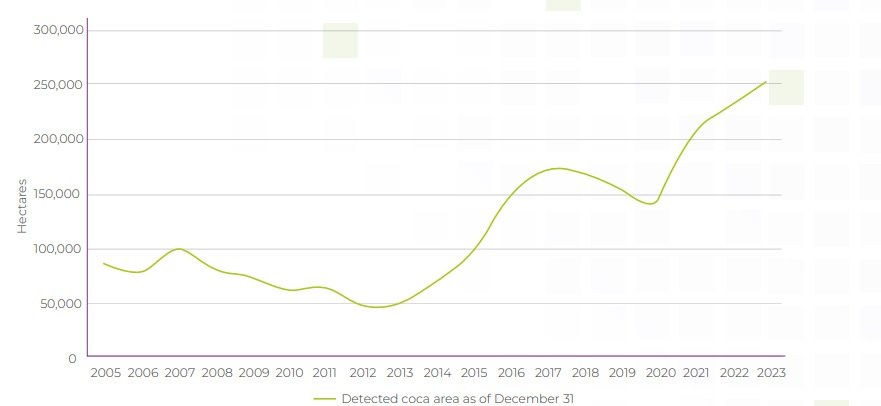
Colombia is the largest producer of cocaine in the world, and though Petro has destroyed more cocaine than any previous Colombian president as part of seizures, coca production — the base ingredient in cocaine — has reached record levels according to the most recent available data from the United Nations Office on Drugs and Crime (UNODC)
Since 2013, coca production in Colombia has increased almost every year. Previous presidents carried out manual eradication programs of coca leaf fields, but Petro has focused on the criminal structures that ship cocaine internationally rather than the producers at the bottom of the pyramid.
He has long argued that punishing farmers who earn little more than subsistence wages is not a productive anti-narcotics strategy. And that those producers, who often lack other economic alternatives, are exploited by the criminal groups who truly profit from the drug trade.
The amount of land dedicated to cultivating coca has almost tripled in the past decade to a record 253,000 hectares in 2023.
Colombia has been decertified by the US once before, in 1996, when then-president Ernesto Samper was credibly accused of receiving campaign contributions from organized crime organizations, including the Cali Cartel.
Dark money from criminal groups has long been a strong factor in Colombian politics.
Though the rise in coca production is undoubtedly a factor for the administration of US President Donald Trump, who threatened to decertify Petro’s right-wing predecessor Ivan Duque in 2019, politics almost certainly are as well.
Petro has often clashed with Trump publicly, sharply criticizing his migration policy as well as his recent violent actions near Venezuela.
This week, the US bombed a second boat near Venezuelan waters, killing 3 people on board. US officials claim the vessel was carrying drugs bound for the United States. They offered no proof for their claims.
US forces have now killed 14 people on fastboats in international waters between Venezuela and Trinidad and Tobago.
Petro spoke indignantly and at length during the cabinet meeting in which the US decision was announced. He pointed out that Colombian police and military personnel “have died for decades enforcing US policy” and promised to terminate all arms trade between the US and Colombia.
“The dependency of our military forces on the United States must end,” he said. “Colombia must be independent.”
Petro has also long been a target of ire for US Secretary of State Marco Rubio, who in the past has called Petro a “terrorist” and a “chaos agent.” Rubio briefly recalled US ambassadors in July for unclear reasons.
Petro’s allies in Colombia accused Rubio of seeking to interfere with presidential elections in the country next year. The country goes to the polls in May.
Prominent right-wing candidates wasted no opportunity in attacking Petro over the decertification. Vicky Dávila, an ultra-right-wing propagandist turned presidential candidate, said the decertification gives a new government, which would take power next year, the “chance to partner with the United States against narco-trafficking.”
She called for “Plan Colombia 2.0” (a reference to the controversial partnership between Colombia and the US against both rebel fighters in the country during the civil war, and narco traffickers), “bounties” on the heads of criminals, and a return to aerial fumigation of coca fields using glyphosate.
Colombia’s Constitutional Court banned the use of the chemical as part of aerial fumigation efforts in 2013 due to extreme environmental damage, comparing its use to that of Agent Orange by the US during Vietnam.
The Washington Office on Latin America (WOLA) strongly urged the US government not to decertify Colombia in a press release on Friday. In addition to other concerns, the NGO pointed out that decertification of Colombia under the Clinton administration “largely sidelined” US efforts in the country and allowed organized crime to continue growing unchecked.
The Trump administration has made the appearance of aggressive anti-drug efforts a priority in recent months, speaking often of fentanyl and a “war” against US citizens being waged by Latin American cartels.
Colombia does not produce fentanyl and is not a meaningful producer of synthetic drugs in US markets.
Even before the most recent designation, the US has made considerable cuts to foreign aid to Colombia.
In an uncharacteristic display of diplomacy, however, Trump seemed to leave the door open to future negotiations.
“The failure of Colombia to meet its drug control obligations over the past year rests solely with its political leadership,” Trump said in a presidential memo submitted to the US Congress.
“I will consider changing this designation if Colombia’s government takes more aggressive action to eradicate coca and reduce cocaine production and trafficking, as well as hold those producing, trafficking, and benefiting from the production of cocaine responsible, including through improved cooperation with the United States to bring the leaders of Colombian criminal organizations to justice.”
You can also donate a one-time gift via “Buy Me a Coffee”. It only takes a few moments, and you can do so here.
And if you can’t do any of that, please do help us by sharing the piece! We don’t have billionaire PR teams either.
Hasta pronto, piratas!


